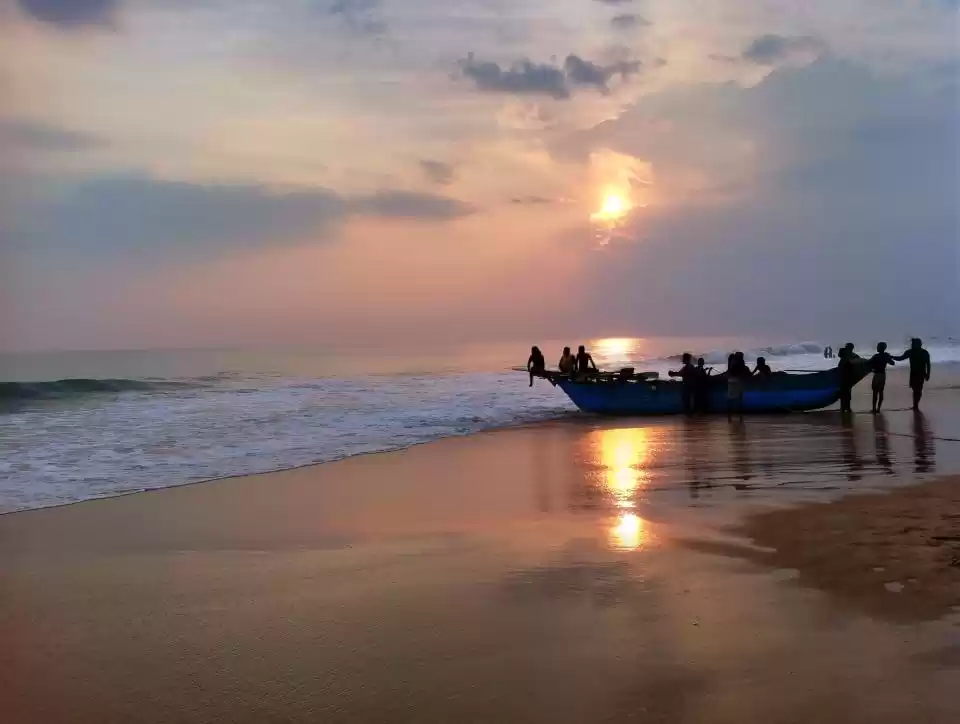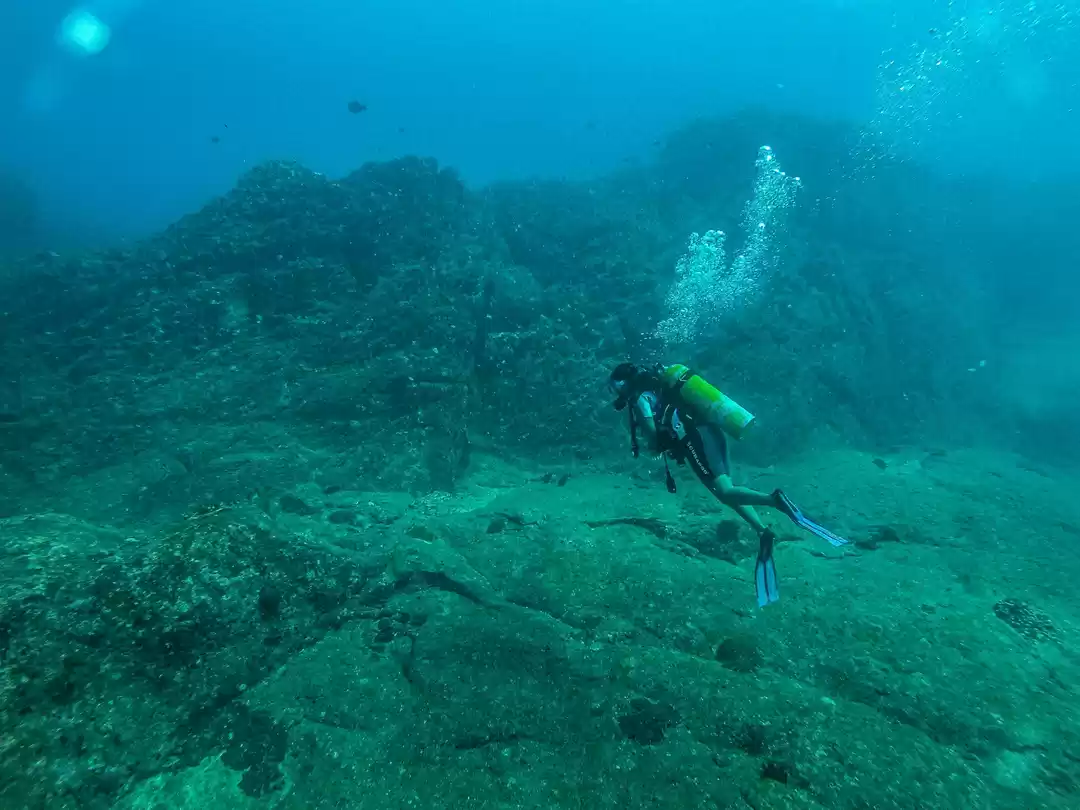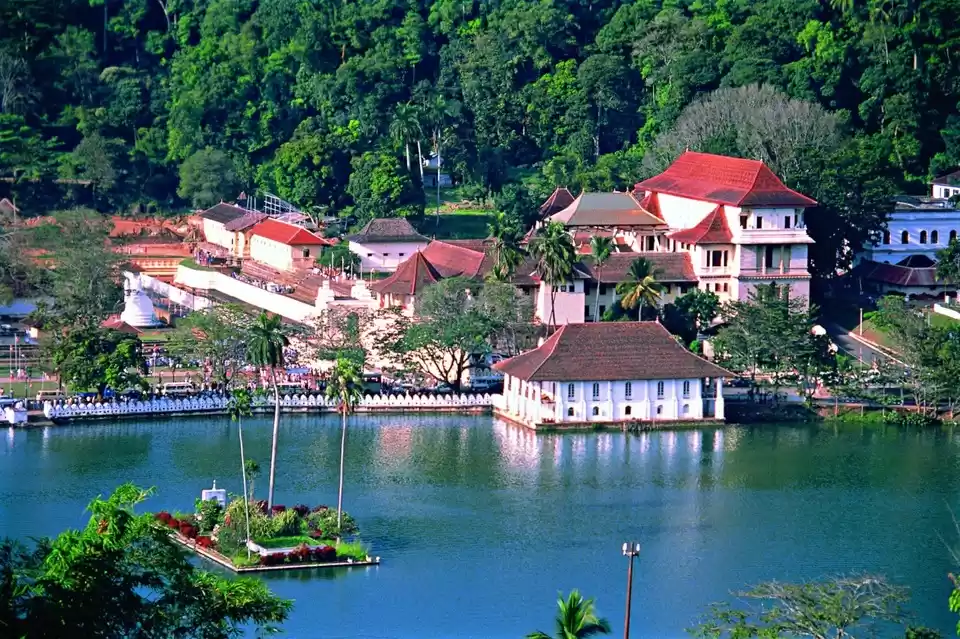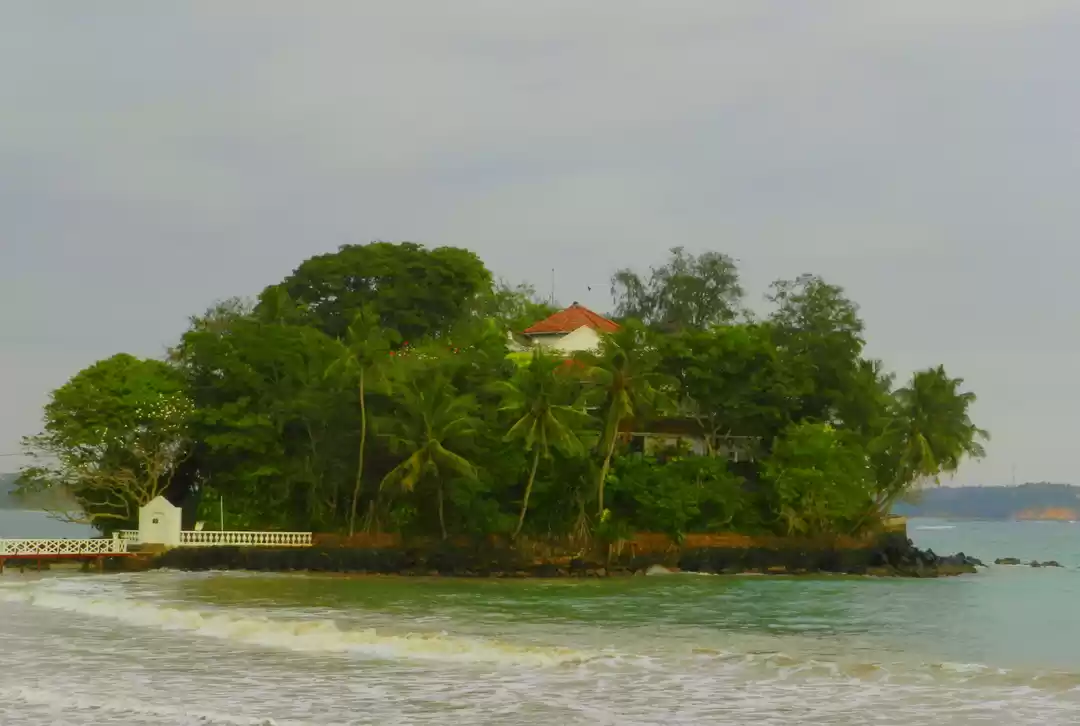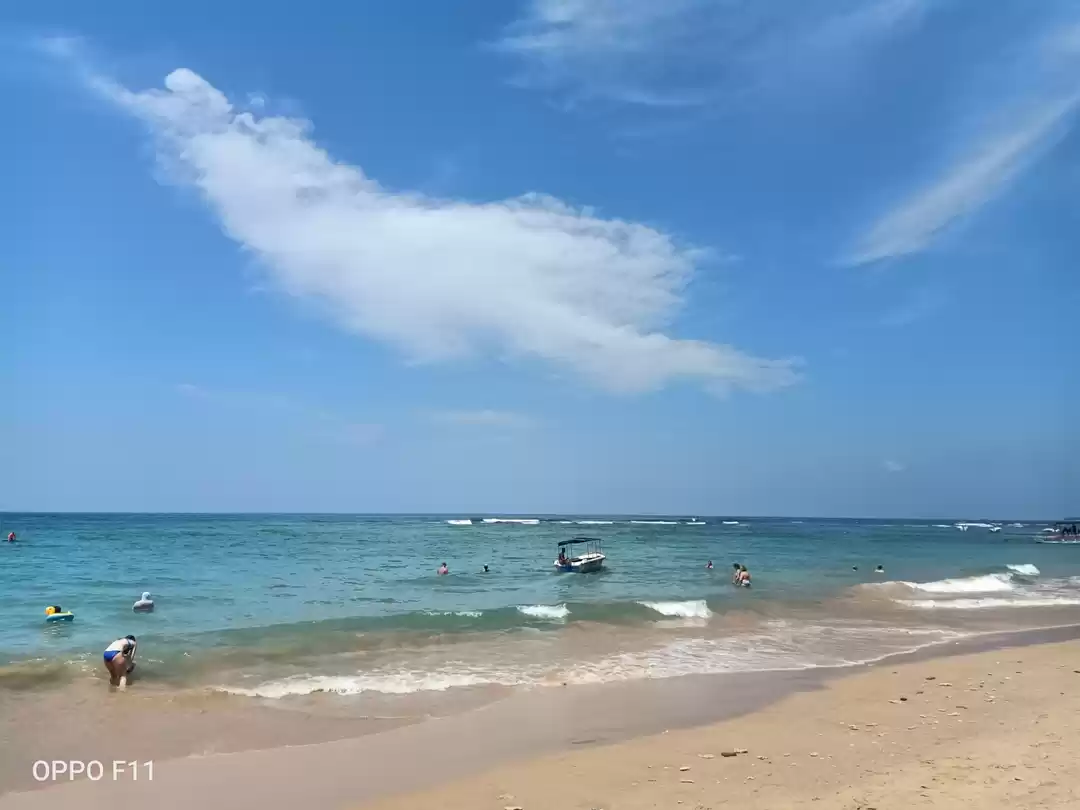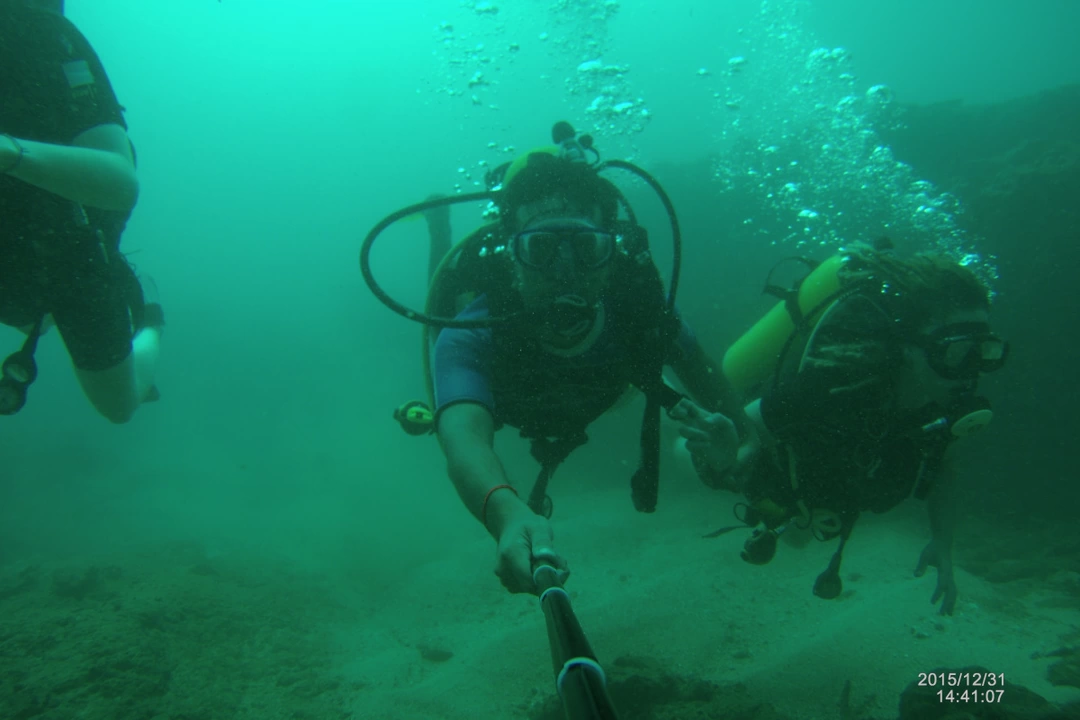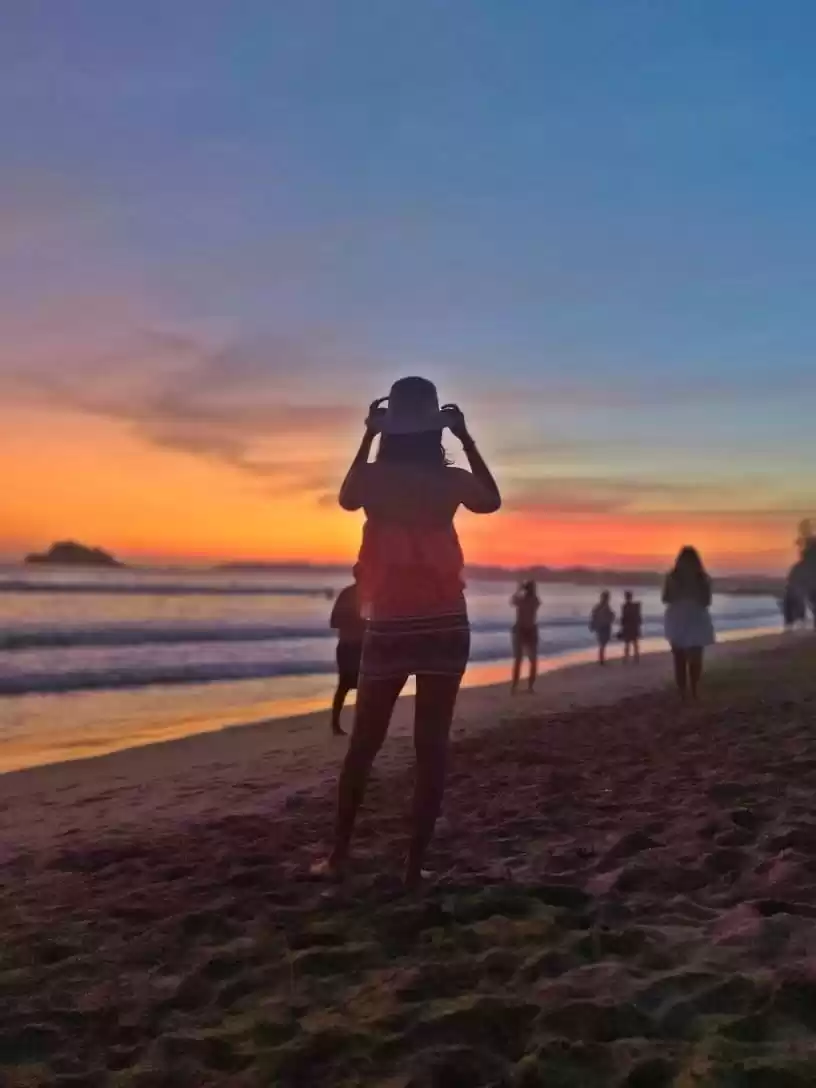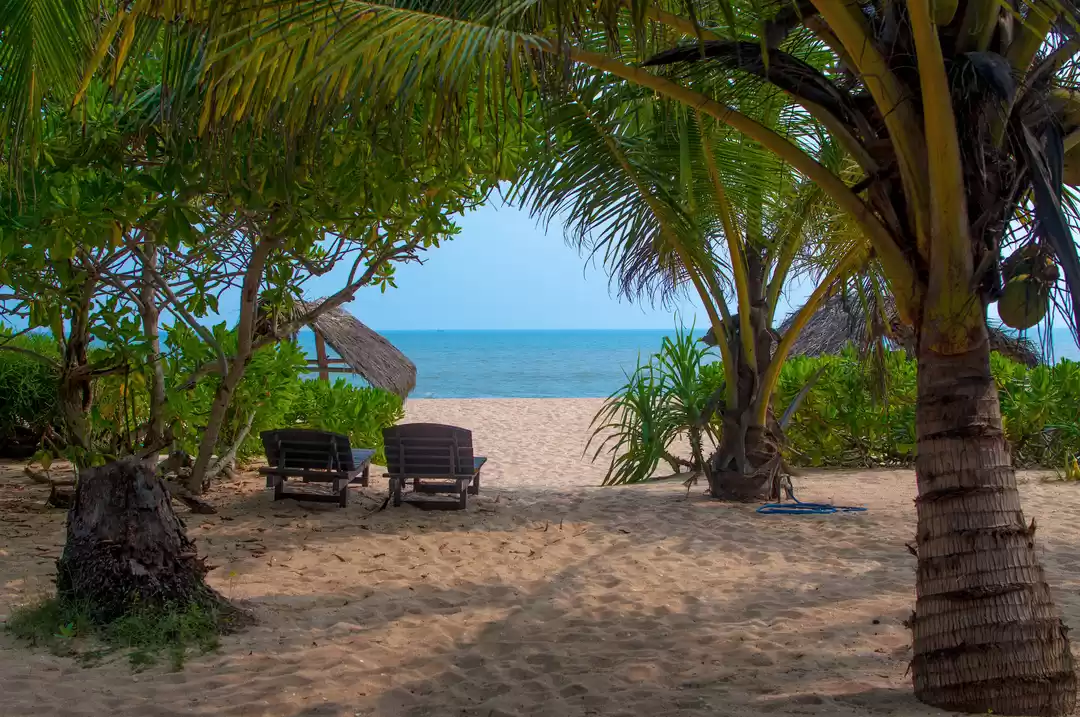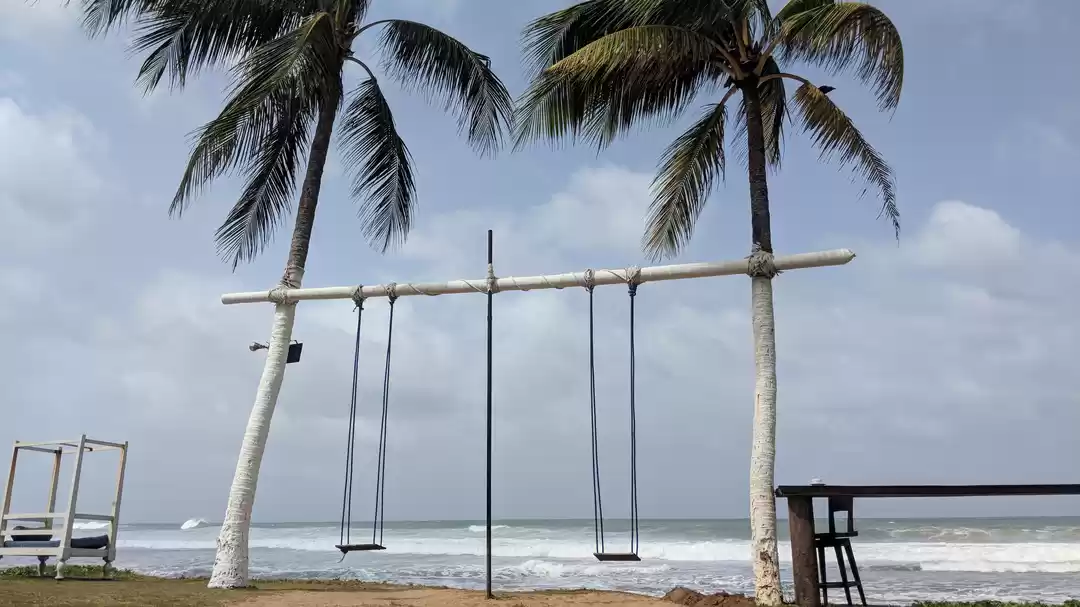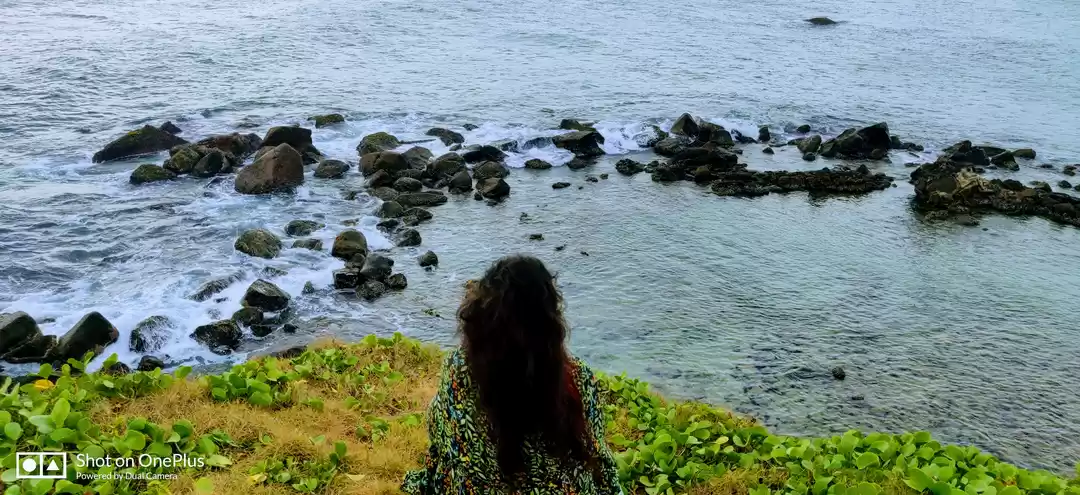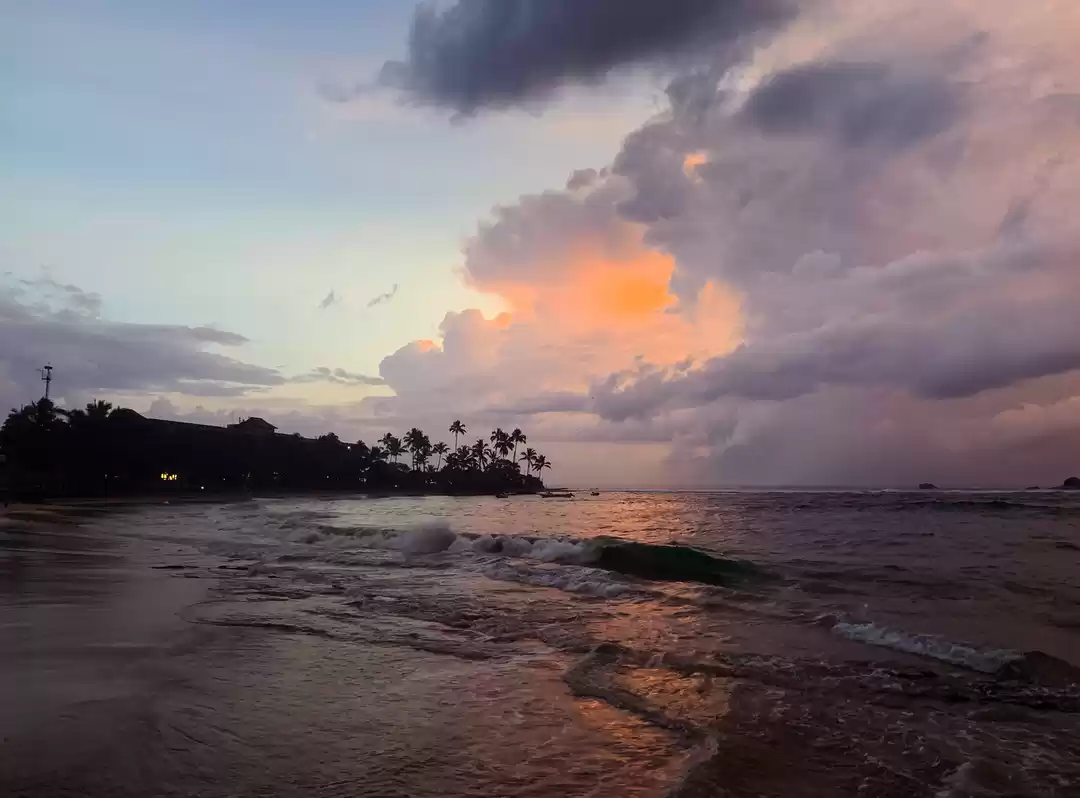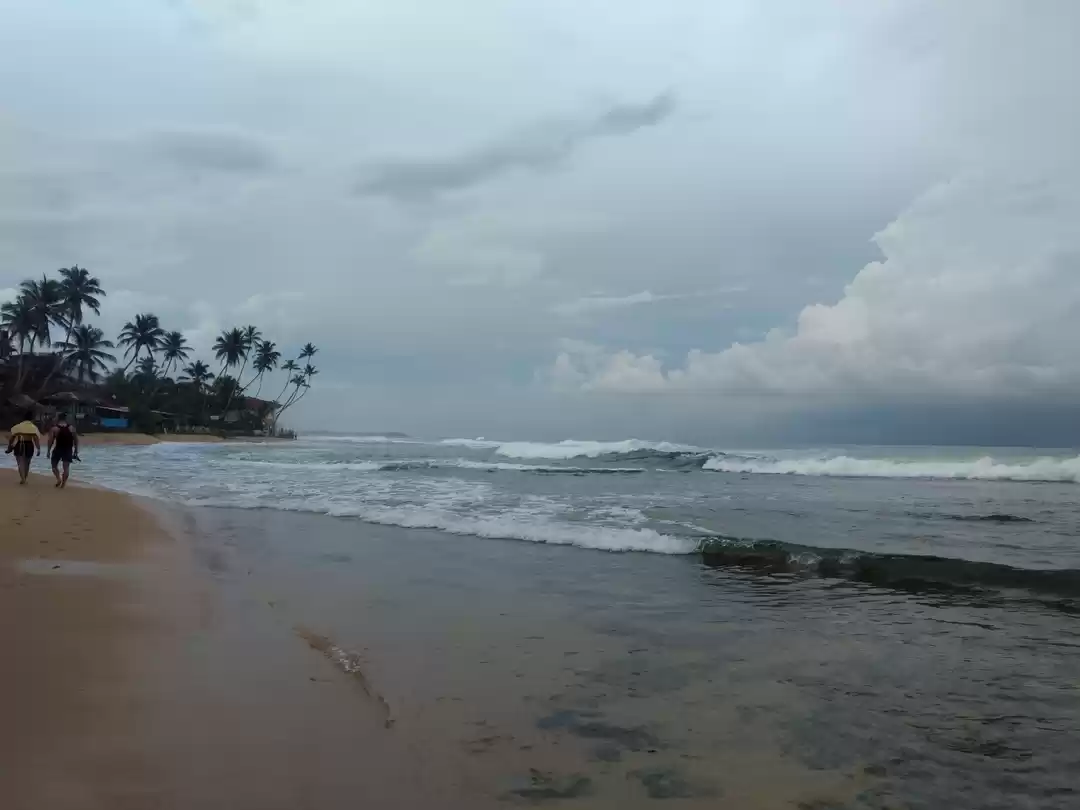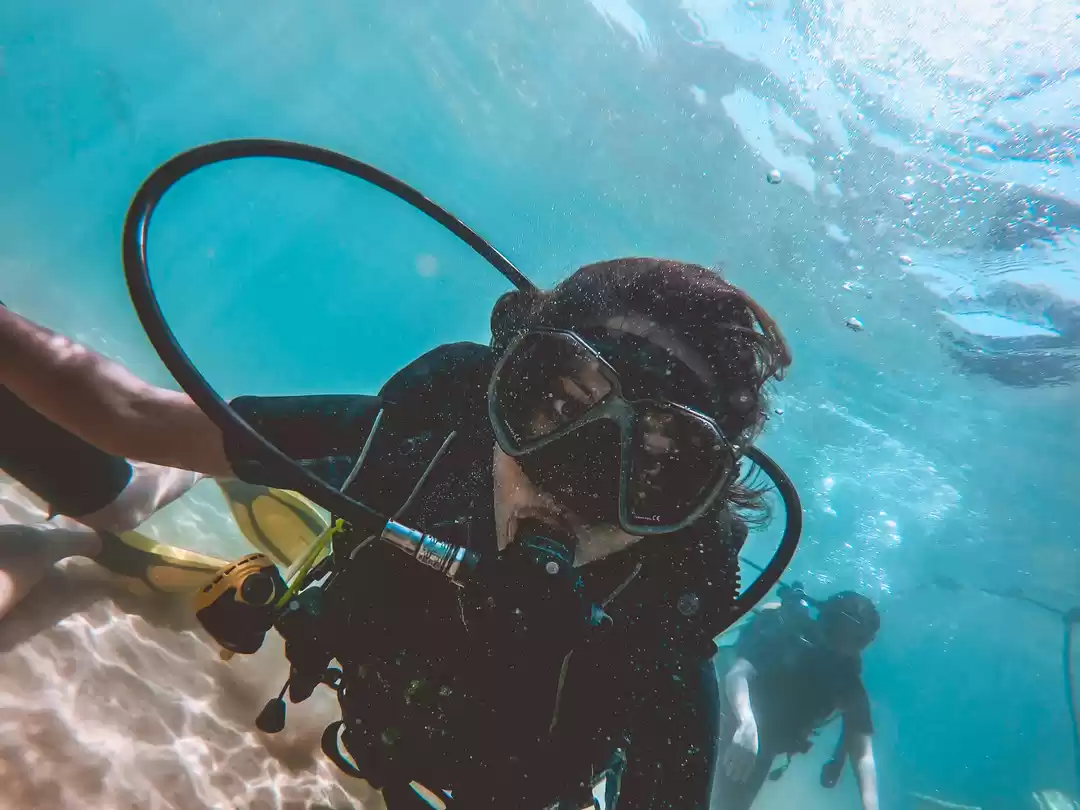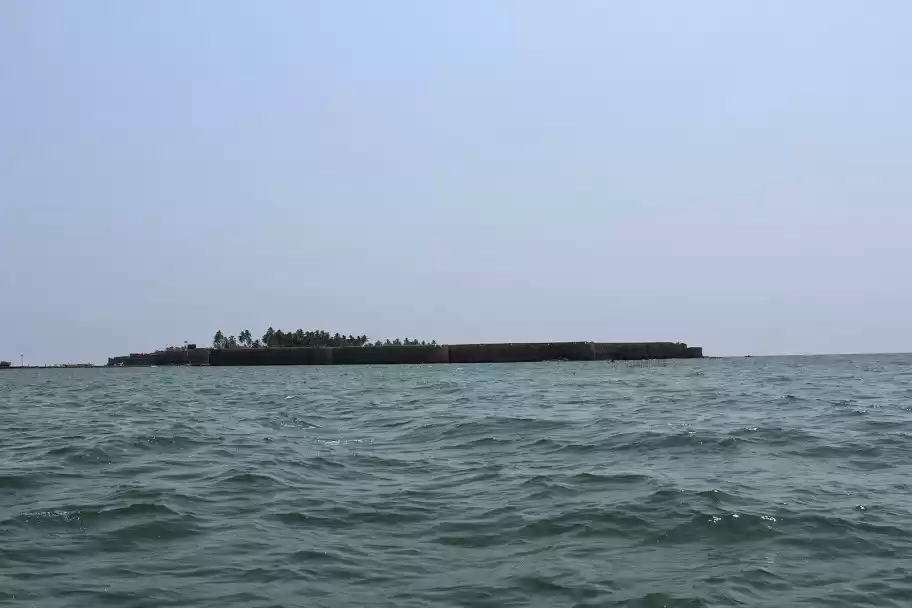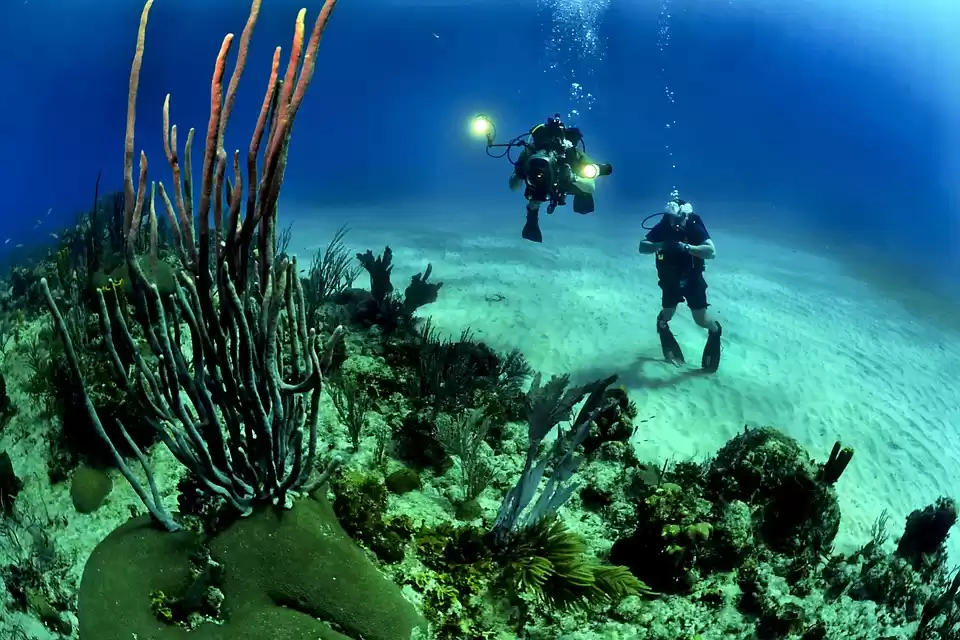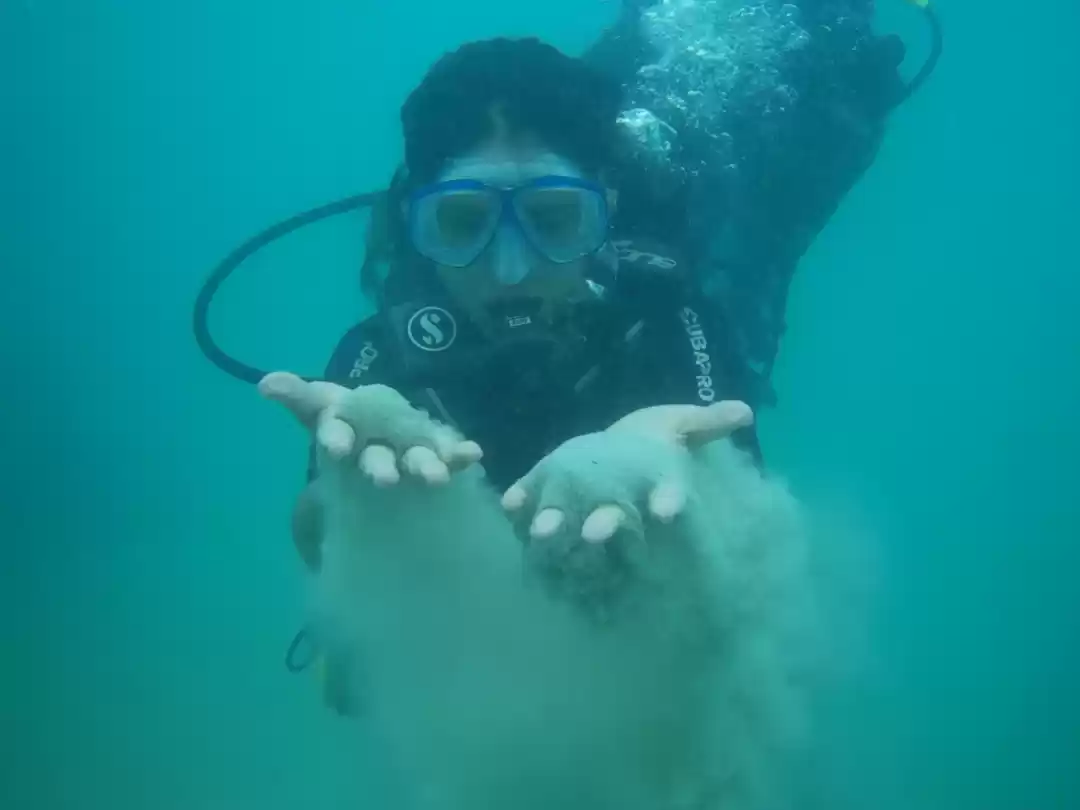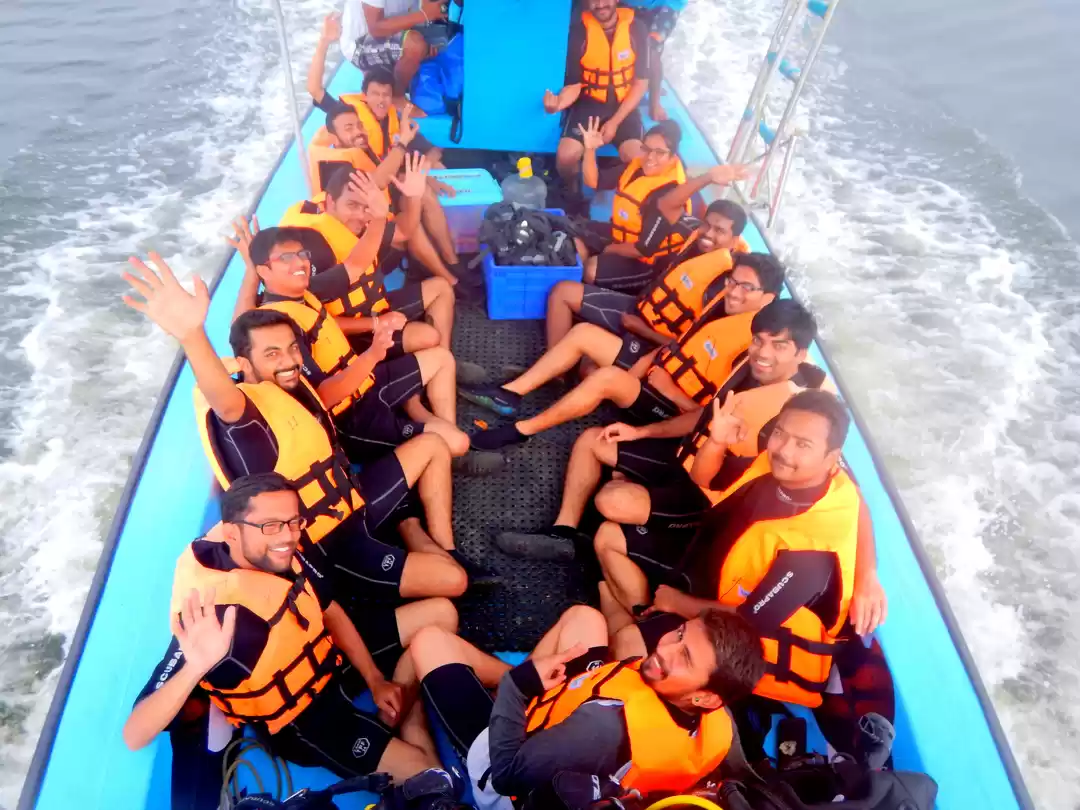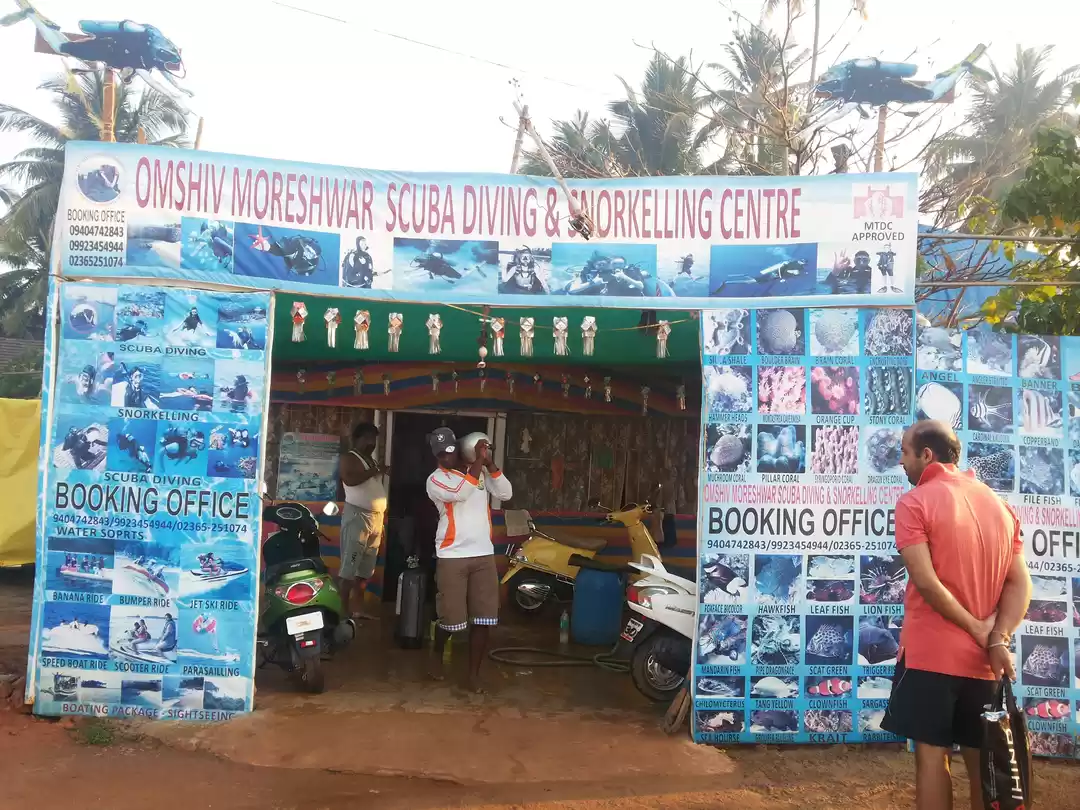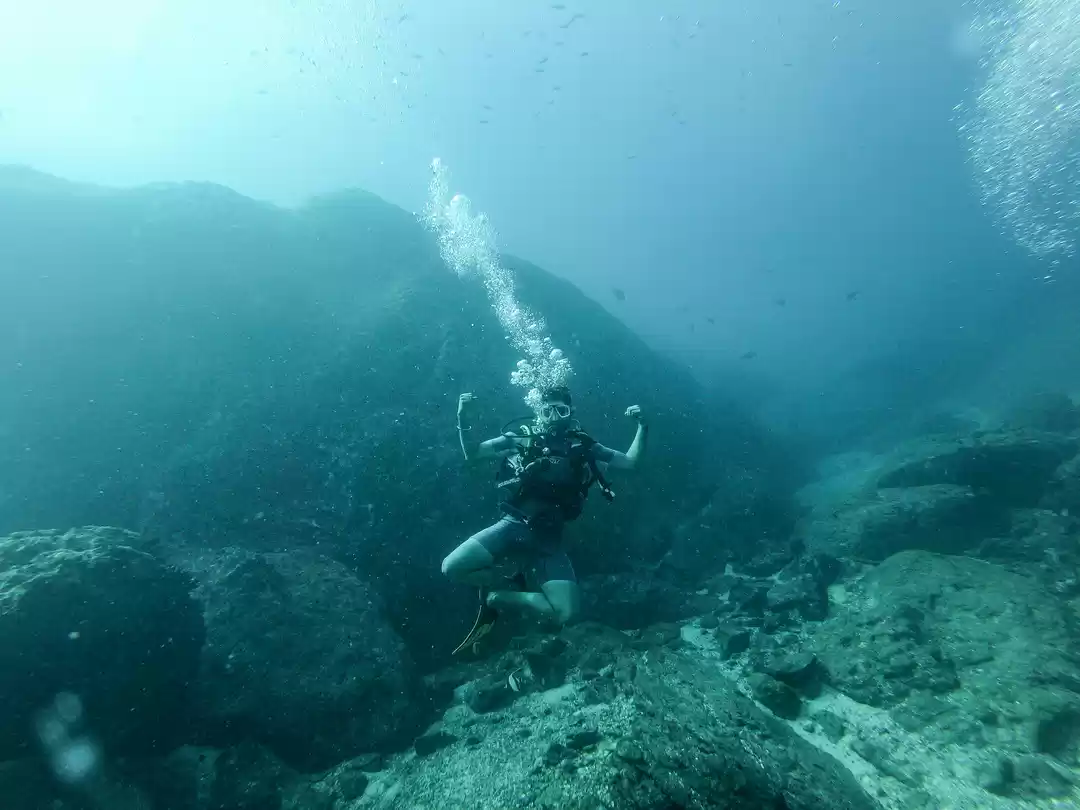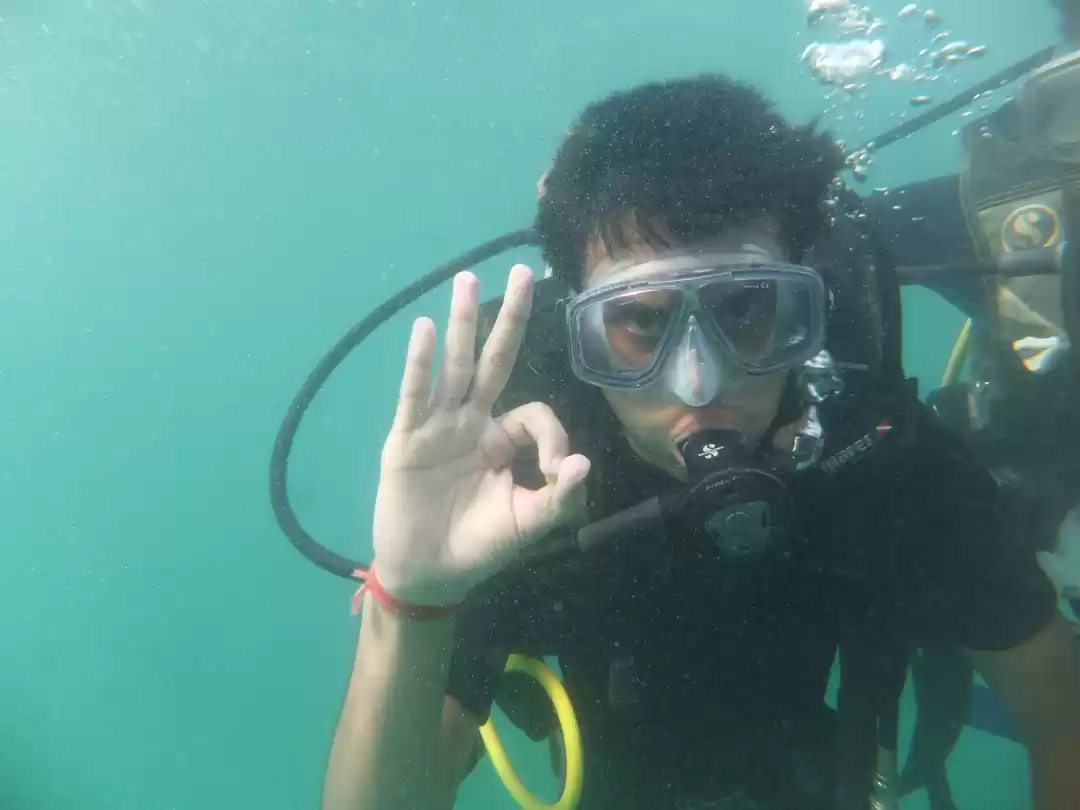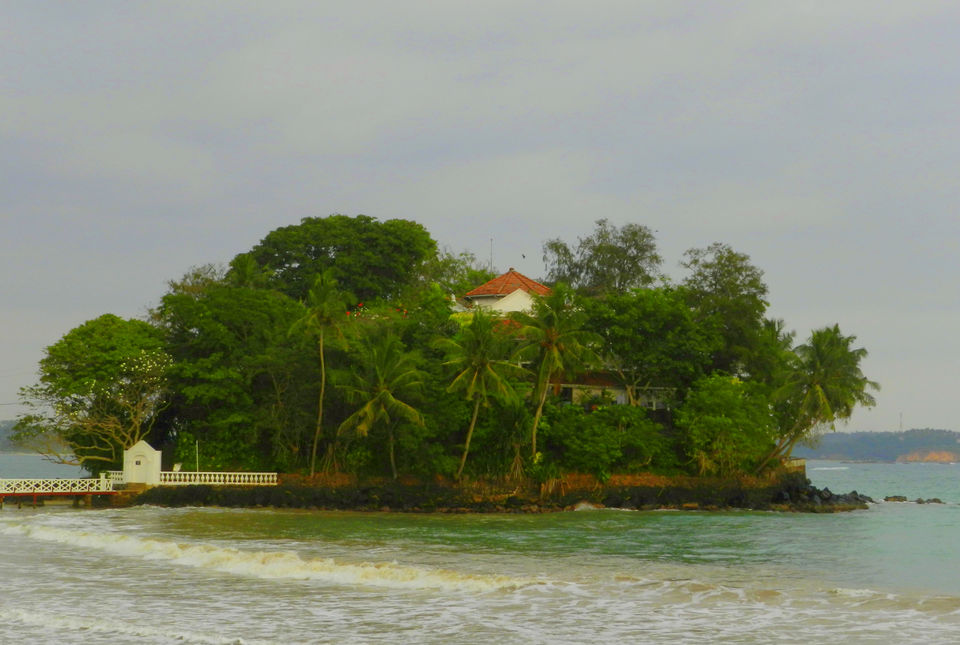
Scuba Diving at Hikkaduwa, Southern Sri Lanka
Hikkaduwa is popular for surfing and a variety of water sports by day, and buzzing with parties in various beach shacks by night. It is akin to India's Goa with a LOT more serious water sports going on. We decided to scuba dive here when on a road-trip through Southern Sri Lanka. Hikkaduwa was our second stop after visiting Colombo. We had flown in 2 days before our dive. It was going to be my second dive, first one being in Andaman. A maginificent place, but that's another story.
It was fairly easy to book ourselves at a local diving school. Infact, we didn't need to make reservations in advance. We only went about it a day before we intended to dive. On a weekend however, you might wanna book early. While registering for a dive, do make sure that the institue you are diving with is certified by PADI. The entire activity takes around half a day, even though the actual time you spend diving under water is 1 hour. Most of the time goes in the pre-diving preparations. We were asked to reach for the dive early next morning at 8 AM. We stayed only half a km from the diving center, if you stay far transport is usually provided by the diving center. It is recommended to have a light breakfast to give you energy for the next 7-8 hours.
A diving batch usually contains 4 to 5 people, and there is one experienced diver accompanying each group of 2 people. The first couple of hours were spent in getting to know the basics of Scuba Diving and the marine species that we expected to see on that day. After meeting our diving instructor for the day, we were assigned diving suits, under-water goggles, ballast (it's a belt with weights to hold you down under water), waders (shoes with long flaps to help you manuever in water) and the oxygen tank. Our instructor then sat us down in a group and taught us bits of sign language needed to communicate under water. Most of it is pretty intuitive and we all got it pretty quickly. The most important take away for me? Thumbs up sign means "pull me out of the water", and not my usual "I am okay". I had to try hard to remember this one.
The next lesson was very important. It taught us how to operate our oxygen tanks. When used properly, an oxygen tank has enough oxygen to last well beyond the time that you are actually going to spend under water. On the other hand, if you are taking in shallow gasps or breathing too hard, you might run out soon. Remember to have relaxed deep breaths. Otherwise, you might have to come up when you run out of oxygen cutting short your diving trip, and trust me you wouldn't wanna give up all those amazing views and come up early. :)
Hence, it is very important to pay attention to learn how to use your oxygen tank properly. Infact, each oxygen tank comes with an additional mouth piece, which you can share with a buddy who has run out of oxygen. Primed with all this knowledge, we were led to shallow waters to practice our newly acquired skills before the final dive. Theory is indeed simpler than the practicals. We sat on the ocean floor practising our sign language operating the various modes of oxygen tank. I had to come up once or twice, since I was feeling a bit ill at ease with my equipment. I realized that the rubber mouthpiece of my oxygen tank did not suit me. I requested the mouthpiece to be replaced with an alternate(made of silicone material), and was fine then.
Finally we were ready for the actual dive. A speedboat carried us deep into the ocean, to a spot where the depth was around 20 meters. We then dived in one by one. All sound is suddenly cut off, and your visual senses suddenly become more active; you are forced to focus a lot more on your breathing. Isn't that what Yoga teaches us? To control and regulate your breathing. Once this new synchronization sets in, you are simpy at peace. The underwater world is truly magnificent. A whole new ecosystem of flora and fauna unfolds before your eyes. In the translucent sunlight that seeps in, colorful corals shine in their multicolored hues; shoals of fish swim by. The variety of colors you see puts your crayon set to shame.
One hour just flew, or rather swam by during our dive. We came out feeling our bodies become suddenly heavy. I was more tired and hungry than I had felt in a long time. A ravishing meal later, we were happy and content discussing the many species of fish we witnessed that day. The multiple charts at the diving center helping us identify the species.
One of the interesting points that came up during the ensuing discussion was that the waters had been a bit murky due to impact of the recent tsunami that hit the region. The corals were partly destroyed due to the impact, affecting the rich fauna underwater. The International Maritime association in Sri Lanka is now taking steps to recover the balance. Fantastic initiative indeed but it will be years before it will be restored to it's full glory. I can only wonder how magnificent it would have been to dive into the pristine waters before the tsunami hit the region. Hoping to be able to do it soon!
If you are not inclined to go Scuba Diving, there are other options available to enjoy the underwater treasures. You could go Snorkeling or for an under sea walk, since these do not need you to go deep into the water. After spending the day playing in the sea, Hikkaduwa has splendid beachside restaurants to offer a relaxing end to a day of adventure.
Point to Note:
1) It ia advidable not to fly right after you scuba dive. Ensure a minimum 12 hours surface time if you have dived once, and 18 hours if you have dived multiple times. This is beacause you are susceptible to Decompression sickness, so it's better to let your body normalize to surface pressure for the recommended time before flying.
2) In case of scuba diving after a flight, there are various accepted beliefs. Some say you need not give much time, but a safe thumb rule is to follow 18 hours gap neverthless.
3) It is not advisable to scuba dive if you have severe cold, for the simple reason that your nasal passages need to remain open to help you equalize the high pressure you encounter under water (a trick that will be taught you at the diving center).
4) It might seem a bit expensive to buy pictures for the dive (the diving center charges extra for giving you the photos, since they use a special under water camera). But it's a great way to keep memories of the dive. I still regret not taking the pictures from my dive.
5) Last point is just an experiantial input. I have generally encountered some of the most interesting people when I scuba dive. People who want push the envelop. For folks having regular corporate jobs like me, it is a great way to meet a lot of different people with varied life experiences. Do make time to hang around after your dive and exchange stories. :)





